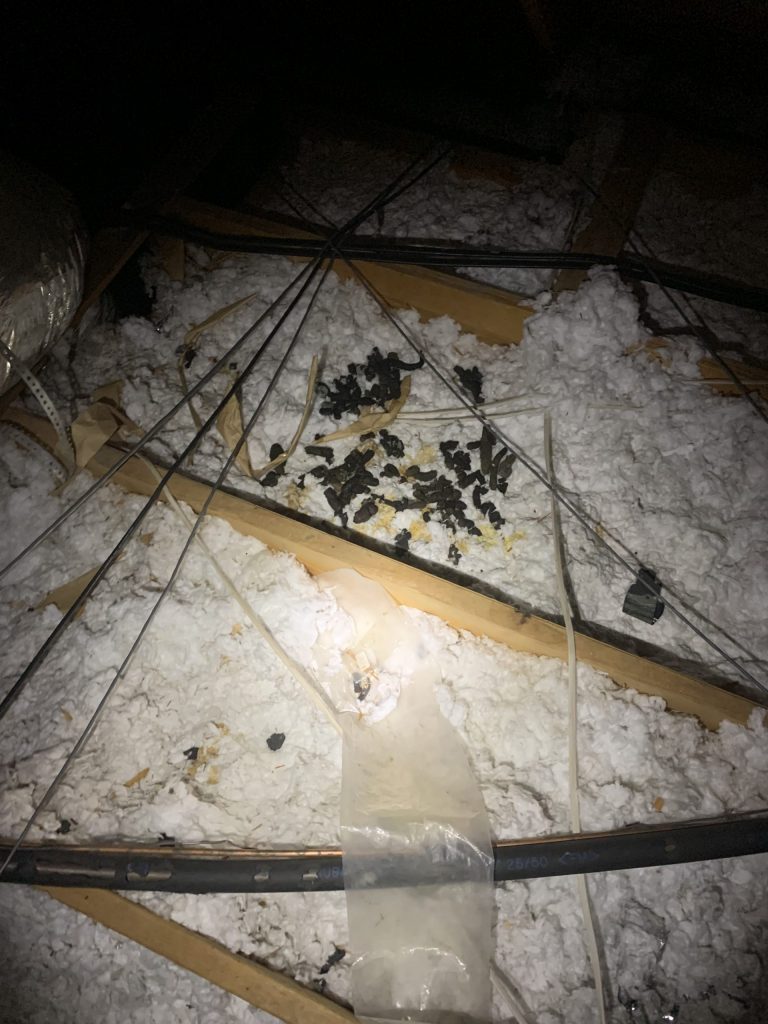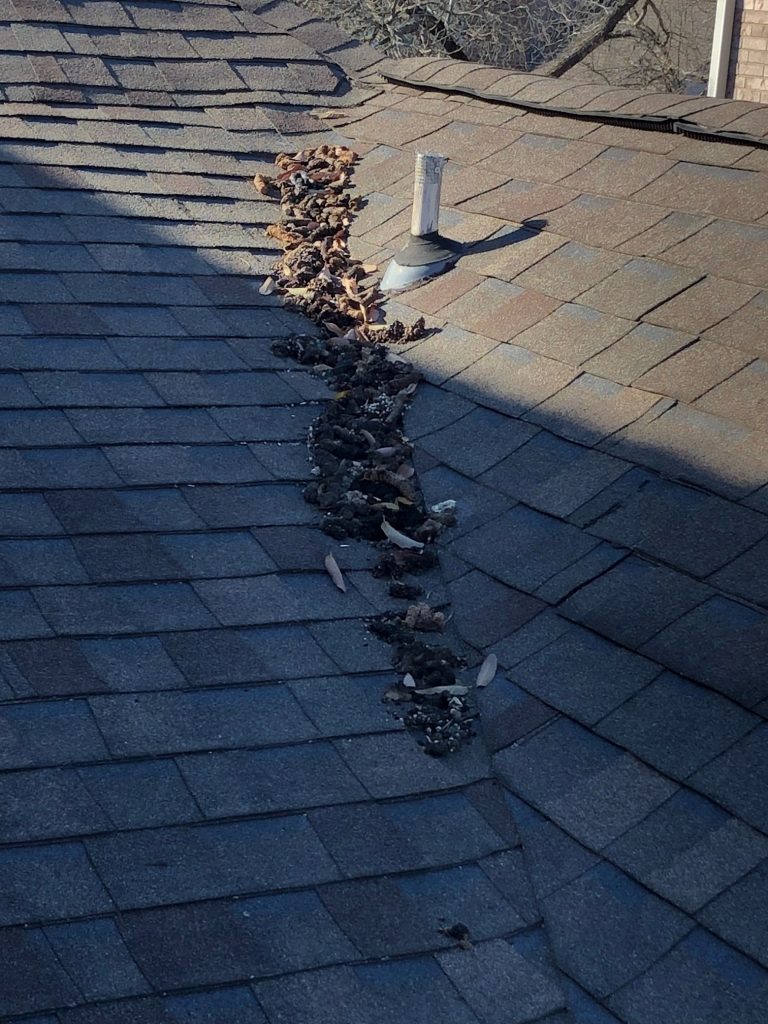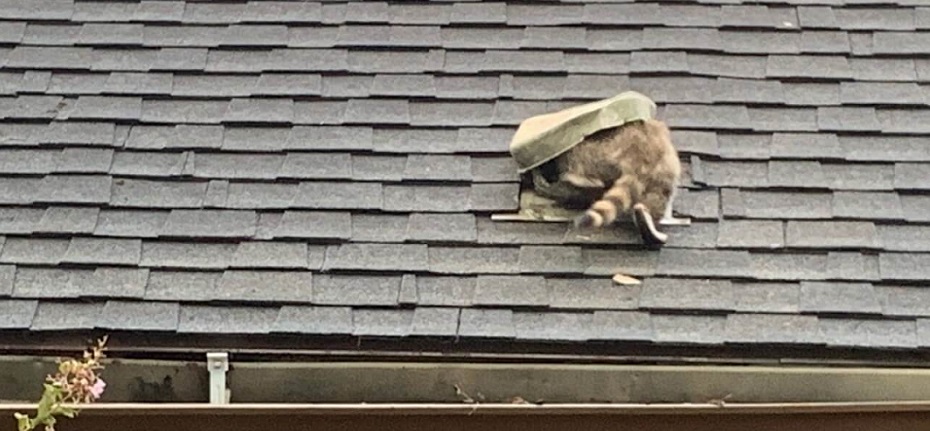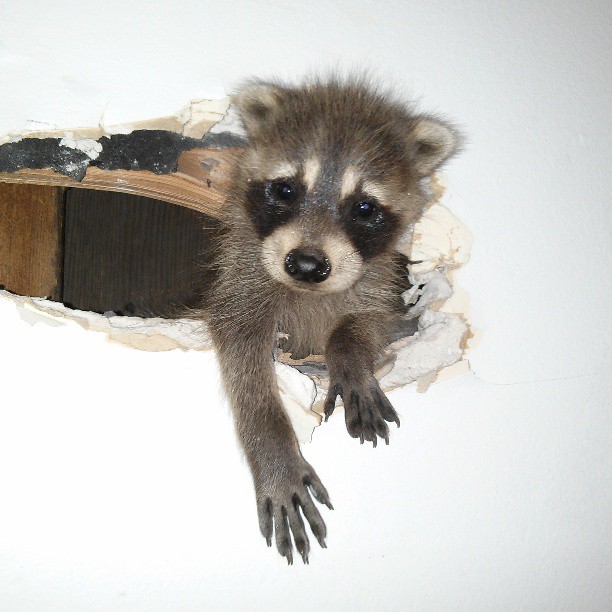Raccoon poop is tubular in shape, has blunted ends, and is usually dark in color, though coloration is subject to change depending on what the raccoon has recently consumed. Undigested food like berries, nuts, or grains can be present in the raccoon scat. Raccoon poop can look like scat from other animals like cats, skunks, or opossums.

Do Raccoons Poop in the Same Place? – Latrine Sites
Raccoons are infamous throughout the United States as nocturnal troublemakers that invade garbage cans looking for easy meals. When they den in residential areas, raccoons create separate latrine sites, and encountering one of these indicates a nearby infestation. They consistently return to these locations, which are commonly found on roofs, in attics, wood piles, haylofts, crawlspaces, and on or under decks.

Health Risks Associated with Raccoon Droppings
Extreme caution is required when cleaning up raccoon latrines because of the health risks. Raccoons are the primary hosts of raccoon roundworm (Baylisascaris procyonis). Their feces can contain thousands of roundworm eggs (Baylisascaris procyonis) that are harmful to both humans and domestic pets if accidentally ingested.
Leptospirosis can spread through raccoon urine. People and animals can get infected when water or soil contaminated with the urine of infected raccoons gets on their skin, or in the nose, mouth, throat, or eyes, or is swallowed.
How to Safely Clean Up Raccoon Poop in the Attic
This step-by-step guide follows best practices from the CDC, Critter Control, and the Texas Department of State Health Services.
- Assess and Identify: Look for raccoon droppings — tubular, blunt-ended feces often containing seeds or nuts. These are usually found in piles in attics or on flat surfaces.
- Put on Protective Gear: Wear gloves, an N95 mask or respirator, protective clothing, and disposable boot covers. This protects against roundworm eggs that can cause serious illness.
- Dampen the Area: Lightly mist the feces and surrounding area with water using a spray bottle to suppress dust and prevent eggs from becoming airborne.
- Remove the Droppings: Use a shovel or scoop to gently collect feces. Avoid sweeping or vacuuming. Double-bag the waste in heavy-duty plastic trash bags and seal tightly.
- Disinfect the Area: Pour boiling water on hard, safe surfaces to kill roundworm eggs. Use hot, soapy water and a disposable sponge for indoor areas that can’t withstand high heat.
- Clean Up and Dispose: Carefully remove gloves and gear. Place all disposable items into sealed trash bags. Wash hands thoroughly and launder clothes in hot water, separately from other laundry.
- Seal Entry Points: Inspect and repair any openings in your attic or roof to prevent future infestations. Remove outdoor attractants like pet food, garbage, or birdseed.
- Know When to Call a Professional: If the infestation is large, or droppings have contaminated insulation or ductwork, contact a wildlife removal service like Critter Control.
Cleanup Supplies List
- Heavy-duty trash bags
- Spray bottle with water
- Shovel or scoop
- Boiling water or propane torch (for outdoor/heavy surfaces)
Required Protective Gear
- Gloves (rubber or disposable)
- N95 respirator or mask
- Protective clothing or disposable coveralls
- Disposable boot covers or washable rubber boots
Always prioritize safety. Prompt cleanup is important as raccoon roundworm eggs can become infectious in just 2–4 weeks.
Since close proximity to raccoon droppings can lead to the contraction of diseases or parasites, individuals should always wear disposable gloves, shoe coverings (booties), or rubber boots, and a respirator when cleaning up raccoon poop.
What Do You Do if You Find Raccoon Poop in Your Backyard?
Do not ignore raccoon poop outside. It can be especially dangerous to dogs or other pets. Raccoon roundworms and leptospirosis can still spread to soil or objects. In your yard, latrine sites are usually on logs, stumps, bases of trees, fence lines, or large rocks. Raccoons can also designate areas on and under your porch as latrine sites.
DIY Outdoor Latrine Cleaning
- Feces and material contaminated with raccoon feces should be removed (using a shovel or inverted plastic bag) and burned, buried, or bagged and placed in the trash to be sent to a landfill.
- Most chemicals do not kill roundworm eggs, but heat will kill the eggs instantly. Treat feces-soiled decks, patios, and other surfaces with boiling water or a propane torch.
- Disinfect hard, smooth surfaces (including shovel blades) with boiling water.
- To help further reduce the risk of possible infection, wash your hands well with soap and warm running water. Clean/launder your clothes thoroughly using hot water and detergent.
If there is consistently new raccoon poop every night in your yard, you need to find a raccoon control solution. The raccoon is either finding food, water, or shelter in your yard. Limit access for effective raccoon control in your yard.
Call Professional Wildlife Control
However, given the dangers, individuals are much better off contacting trained wildlife specialists to remove pest raccoons and clean up scat and urine. Critter Control technicians have the training and equipment to safely sanitize homes and property.
Raccoon poop can mean you have a raccoon problem. If you found raccoon poop, there was a raccoon infestation.
The raccoon needs an entry hole about the size of a grapefruit. Without raccoon exclusion repairs, raccoons or other wild animals can get into your house. Raccoons will also damage insulation and electrical wiring, and in extreme cases fall through ceilings.


